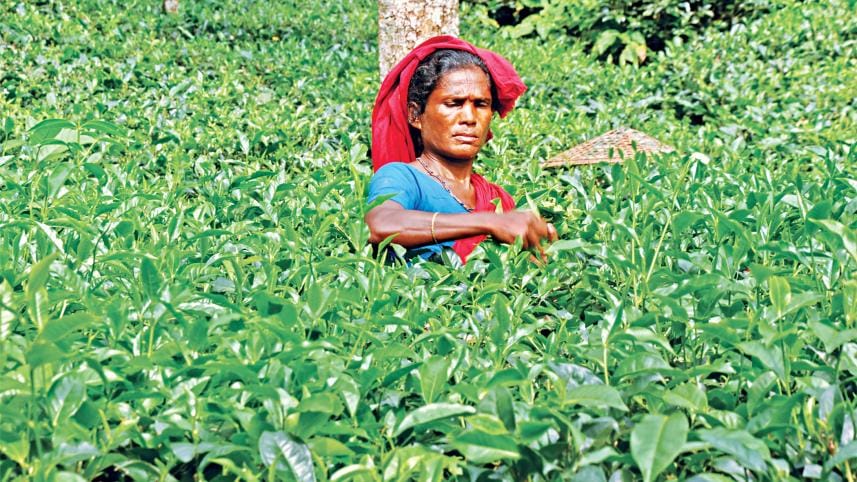Competitive prices lift tea exports to seven-year high

Bangladesh's tea exports have hit the highest mark in the last seven years as competitive pricing provided an edge over major exporters like India and Sri Lanka.
Exporters say another big factor for the increase is Bangladeshi expatriates' preference for buying tea sourced from their homeland.
As of October 2024, Bangladesh exported 2.20 million kilogrammes (kg) of tea, the highest annual export volume since 2017, when exports touched 2.56 million kg, according to Bangladesh Tea Board (BTB) data.
This year's shipments have brought in Tk 382.52 million.
However, the country's tea exports are prone to wild fluctuations.
The BTB data shows that tea exports stood at just 0.65 million kg in 2018 before falling further to 0.60 million kg the year after.
It jumped to 2.17 million kg in 2020, but this positive trend did not persist as tea exports plummeted to 0.68 million kg again in 2021.
However, it has been on the rise since, with 0.78 million kg shipped in 2022 and 1.04 million kg in 2023.
Industry insiders attribute the rise to competitive pricing, which has seen the nation position itself as a favourable supplier.
They said Bangladesh provides tea at competitive prices while Indian and Sri Lankan brands gear their offerings to a more premium segment.
Salek Ahmed Abul Masrur, chief executive officer of the Consolidated Tea & Lands Company Bangladesh Limited (Finlay Tea), told The Daily Star that his company had exported half a million kg of tea so far this year.
"Our tea is mainly exported to Pakistan. These are basically sold in bulk. Pakistan is not a tea-producing country. Also, they export packaged tea to the United Arab Emirates," he said.
On condition of anonymity, a senior official of a major tea exporter, said they have exported about one million kg of tea to the United Arab Emirates and Kuwait so far this year.
Some of the leaves are sent to Oman from the United Arab Emirates as the company does not export it directly, he said.
The expatriates who are in the UAE and Kuwait prioritise Bangladeshi brands, which is a major factor for exports, he mentioned.
Bangladesh is currently the world's ninth-largest tea producer, accounting for around 2 percent of the world's total production, according to Bangladesh Tea Association (BTA).
China is the largest, followed by India. Sri Lanka, Kenya, South Korea and Japan are also ranked among the world's largest tea producers.
As competition from brands based in tea-producing giants is rife on the international market, Bangladeshi exporters must strive to ensure quality.
"To compete with them, customers must get good tea. Otherwise, the product cannot survive in the market," the official said.
Masrur, also the senior vice-chairman of the BTA, the only representative body of all tea estates in the Sylhet and Chattogram districts, said production was currently outpacing demand on the local market, necessitating the focus on export.
"However, tea from Bangladesh is not going anywhere except the Middle East and Pakistan at present," he said, stressing that exporters must explore the international market effectively, especially with production increasing.
From independence in 1971 until 1990, Bangladeshi tea was exported to many countries, even England, he informed.
Despite the topsy-turvy nature of tea exports in recent years, the state-run BTB continues to harbour exorbitant expectations.
It has set the export target for 2025 at above 15 million kg, a far cry from the trends witnessed over the past two decades.
According to the BTB data, the highest amount of tea exported by Bangladesh in a year was 13.65 million kg, which was recorded all the way back in 2002.
Bangladesh has 166 tea gardens covering almost 280,000 acres of land.
A total of 90 of the tea gardens are in Sylhet's Moulvibazar district, which accounts for 55 percent of the tea produced in the country. Habiganj, located nearby, is the second-largest producer, contributing 22 percent.




 For all latest news, follow The Daily Star's Google News channel.
For all latest news, follow The Daily Star's Google News channel.
Comments